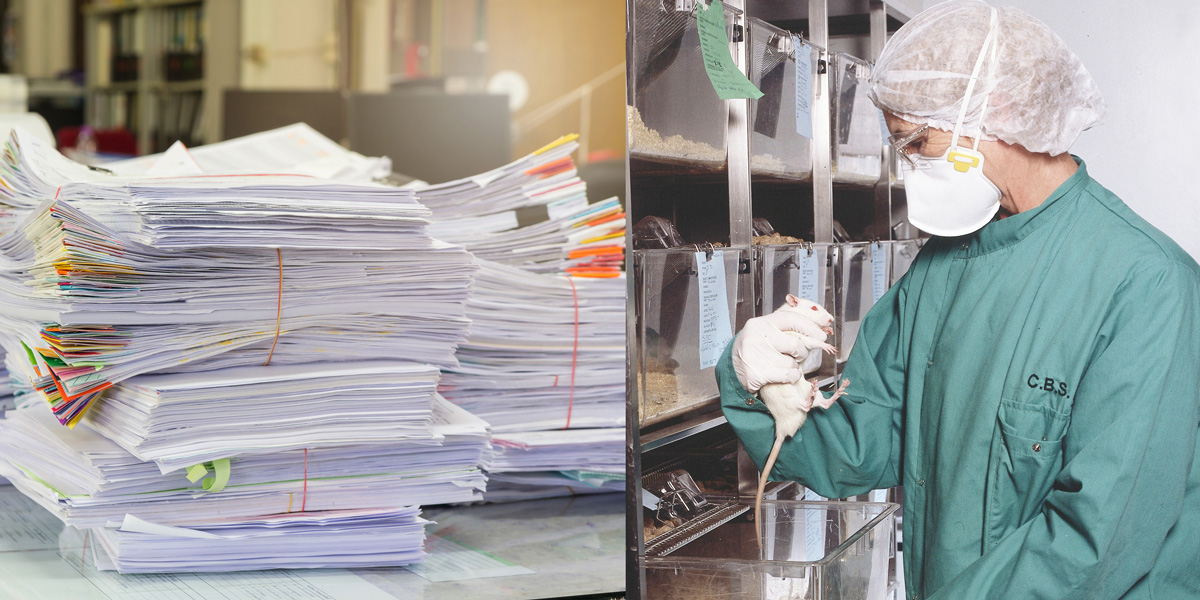
New peer-reviewed publication condemns lack of objectivity and scientific rigour in citizen scientists’ exercise
Cornell Alliance for Science has launched an initiative in which “citizen scientists” are recruited to evaluate studies on the health risks of GM crops in order to establish whether the “consensus” on GM food safety claimed by the American Association for the Advancement of Science (AAAS) is supported by a review of the scientific literature.
London-based molecular geneticist Dr Michael Antoniou and GMWatch editor Claire Robinson have critiqued the exercise in a new peer-reviewed article (abstract below), published in the journal Frontiers in Public Health.
They draw attention to fundamental weaknesses in the study design.
In particular, only the publication abstracts will be taken into consideration. This is a problem because when it comes to GMO food safety studies, the devil is in the detail.
Frequently, statistically significant differences are noted in GM-fed animals but these are dismissed in the abstract as not biologically relevant or “not adverse”.
Yet other scientists may disagree, seeing such changes as potential signs of more serious disease that must be followed up in further investigations.
It seems unlikely that such different interpretations of the same data will be taken into account in this exercise.
In addition, it is not clear whether studies on the pesticides associated with GM crops (such as Roundup) will be taken into consideration.
The authors also point out the Alliance’s failure to make the methodology public at the outset. They warn, “This may raise suspicion among the skeptical public who form the target audience for this exercise that the criteria upon which the abstracts are evaluated might be retrospectively selected to fit a preordained conclusion.”
The authors conclude, “Based on … weaknesses in the study design, we believe it is questionable as to whether any objective or meaningful conclusion can be drawn from the Alliance’s initiative.”
Please circulate the news of this publication far and wide.
—
Cornell Alliance for Science Evaluation of Consensus on Genetically Modified Food Safety: Weaknesses in Study Design
Michael N. Antoniou and Claire J. Robinson
Front. Public Health, 13 April 2017
https://doi.org/10.3389/fpubh.2017.00079
Cornell Alliance for Science has launched an initiative in which “citizen scientists” are called upon to evaluate studies on health risks of genetically modified (GM) crops and foods. The purpose is to establish whether the consensus on GM food safety claimed by the American Association for the Advancement of Science (AAAS) is supported by a review of the scientific literature. The Alliance’s citizen scientists are examining more than 12,000 publication abstracts to quantify how far the scientific literature supports the AAAS’s statement. We identify a number of fundamental weaknesses in the Alliance’s study design, including: evaluation is based only on information provided in the publication abstract; there is a lack of clarity as to what material is included in the 12,000 study abstracts to be reviewed, since the number of appropriately designed investigations addressing GM food safety are few; there is uncertainty as to whether studies of toxic effects arising from GM crop-associated pesticides will be included; there is a lack of clarity regarding whether divergent yet equally valid interpretations of the same study will be taken into account; and there is no definition of the cutoff point for consensus or non-consensus on GM food safety. In addition, vital industry proprietary biosafety data on GM crops and associated pesticides are not publicly available and thus cannot inform this project. Based on these weaknesses in the study design, we believe it is questionable as to whether any objective or meaningful conclusion can be drawn from the Alliance’s initiative.
The image of the lab technician and rat above is courtesy of Understanding Animal Research.